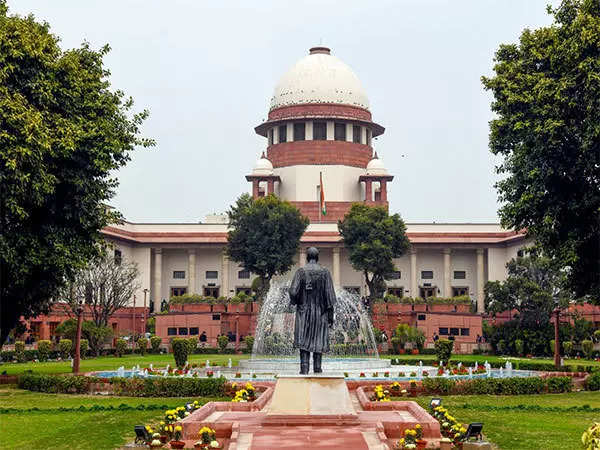
[ad_1]
A bench of justices Surya Kant and KV Viswanathan’s recommendations got here whereas coping with the matter regarding Kerala’s plea in opposition to Centre over monetary issues.
The court docket remarked to the Centre that they are often barely liberal, give a one-time package deal as a particular case and apply extra inflexible circumstances in future budgets.
The court docket additionally prompt giving the particular package deal to Kerala by March 31 topic to harsher circumstances than different States. For the prevailing States you’ll be liberal subsequent time, the court docket remarked
Senior advocate Kapil Sibal talked about Kerala’s go well with the matter earlier than the Supreme Courtroom on Tuesday and apprised the court docket that Centre will not be releasing any cash to the tune of 19000 crore.
The court docket prompt the Centre and Kerala to try to work out.The court docket mentioned that it’s going to hear the matter tomorrow.Earlier the Supreme Courtroom had directed the Kerala Govt to carry a gathering with Centre and state officers to resolve the monetary points arising between them.
Earlier in its affidavit, the Kerala Authorities mentioned that the Central Authorities accounts for roughly 60 per cent of the full debt or excellent liabilities of India.
In an affidavit, the Kerala Authorities mentioned that the Centre cannot management the debt of state and the justification put forth by the Union Authorities to regulate the borrowings of the Kerala State are fallacious, exaggerated and unjustified.
Responding to the notes filed by the Legal professional Normal, Kerala Authorities made submission and mentioned, “The Central Authorities accounts for roughly 60 per cent of the full debt or excellent liabilities of India. All of the states put collectively account for the remainder (roughly) 40 per cent of the full debt of the nation. In truth, the Plaintiff State accounts for a miniscule 1.70-1.75 per cent of the full debt of the Centre and the States put collectively for the interval 2019-2023.”
Kerala’s monetary well being and debt scenario have attracted hostile observations from successive Finance Commissions (twelfth, 14th and fifteenth) in addition to the CAG and it is without doubt one of the most financially unhealthy states as its fiscal edifice has been recognized with a number of cracks, Legal professional Normal mentioned in a word submitted earlier than the Supreme Courtroom.
Responding to Kerala’s authorities go well with, the Centre in its affidavit, apprised the Supreme Courtroom that Kerala has been probably the most financially unhealthy states, and its fiscal edifice of Kerala has been recognized with a number of cracks.
The Legal professional Normal for India has filed a written word within the go well with filed by Kerala Authorities the place he mentioned that debt of states impacts the credit standing of the nation.
The word was filed in response to the Kerala Authorities petition in opposition to Centre’s alleged interference in states’ funds and mentioned that because of such interference the state will not be capable of fulfil the commitments in its annual budgets.
In a go well with filed by Kerala authorities, it said that state authorities offers with the chief energy conferred on the Plaintiff State beneath Article 293 of the Structure of India to borrow on the safety or assure of the Consolidated Fund of the State in alignment with the fiscal autonomy of the Plaintiff State as assured and enshrined within the Structure.
Kerala Authorities, via its petition, mentioned Centre via the Ministry of Finance (Public Finance-State Division), Division of Expenditure letters dated March 2023 & August 2023 and by amendments made to Part 4 of the Fiscal Duty and
Funds Administration Act, of 2003 sought to intrude with the funds of the state by imposing a web borrowing ceiling on the State.
The Kerala authorities mentioned that such interference with the funds of the state was attributable to imposing a web borrowing ceiling on the plaintiff state within the method deemed match by the defendant union, which limits borrowings from all sources, together with open market borrowings.









